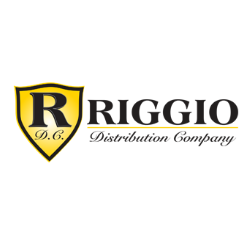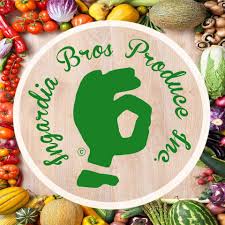In response to the dynamic changes in the e-commerce landscape, retailers are increasingly turning to the strategy of composable commerce to transform their online presence and cater to the evolving demands of digital consumers.
Composable commerce represents a modular approach to constructing e-commerce systems, wherein various components like checkout processes, payment gateways, inventory management and customer support are treated as distinct services or modules.
These modules can be mixed and matched to create a customized commerce solution tailored to the specific needs and goals of a business. This approach offers considerable flexibility, scalability, and agility, allowing retailers to swiftly adapt to evolving market conditions and changing consumer preferences.
In a recent news release, The Kroger Co. said it implemented a suite of digital strategies aimed at adapting to evolving shopper preferences. Leveraging headless commerce capabilities, the company said it enhanced the efficiency of digital order fulfillment, particularly in curbside pickups and home deliveries. This platform is instrumental in powering e-commerce pickup and delivery services across over 1,000 Kroger locations, the company said.
"The solution helps us create a seamless associate experience through guided processes and simplified training — ultimately reducing our customer wait times," Sriram Samu, customer technology vice president for Kroger, said in the release.
The Packer discussed composable commerce with Lisa Grayston of Coveo, which recently joined the MACH Alliance, a group of independent tech companies dedicated to advocating for open, best-of-breed technology ecosystems. Coveo, a provider of artificial intelligence-platforms that brings AI search and GenAI to every point of experience across the enterprise, sees composable commerce as a solution to the complex needs and expectations from consumers for digital experiences.
Editor's note: The following Q&A has been edited for clarity.
How does Coveo see composable commerce benefiting retailers in the grocery sector compared to traditional approaches?
Lisa Grayston: MACH architecture provides the agility digital leaders need to constantly adapt, remain relevant and competitive as customer needs change. Instead of using one-size-fits-all technology, MACH architecture gives businesses the freedom to choose from the best tools on the market today and provide a structure that makes it easy to add, replace, or remove technologies in the future. Composable commerce becomes even more important for grocers, since they operate at low margins and must have an even greater flexibility and agility to be ahead of ever evolving consumer expectations.
With Coveo being both an SAP partner and a member of the MACH Alliance, how does the company navigate the potential tension between these two competing philosophies when advising grocery retailers?
Despite a difference in approach between the two, essentially both MACH and SAP have the interest of customers and their success at the core of their beliefs, which aligns with Coveo's values. MACH focuses on the technical approach, providing customers with flexible options to choose from best-in-class solution providers, suited to their individual and unique needs.
SAP focuses on the composable business strategy by enabling customers with the flexibility to choose from best-of-breed solutions that complement the SAP offering, a departure from the all-in-one approach that they had in the past. As such, from a Coveo perspective, we focus on providing our customers with an AI experience advantage, be it composable or a MACH architecture-based philosophy.
Can you elaborate on how MACH architecture provides flexibility for grocery retailers in terms of choosing and integrating technologies, particularly in the context of digital storefronts?
Grocers can benefit from the innovation and expertise of the solutions that are part of the MACH ecosystem, all tried and tested to ensure they adhere to the MACH architecture-based principles. Businesses do not need to try to build everything themselves nor carry out extensive diligence in ensuring the chosen solutions are indeed future-proof and provide them with the much-needed agility in an ever-changing competitive landscape.
Coveo has more than a decade of AI experience and is a leader in AI search, recommendations and now generative answering. Our single software-as-a-service, multitenant platform gets updates and new releases more than 1,500 times a month, giving our customers a continuous subscription to innovation. Our proven process is designed to reduce risks, ensure deployment benefits and maximize business value. We thrive at providing a personalized true 1-to-1 experience using AI [for] power search, recommendations and product discovery for large and diverse product offerings.
Today, consumers need and want a relevant and personalized online experience; it's no longer sufficient to send coupons for ground beef to vegans, as an example. Shoppers have specific brand preferences, specific cyclicity in purchasing certain products, specific routines that dictate certain staple products they buy week after week, but they increasingly expect high-quality experience, delivery and products. With the right AI technology, grocers can meet these ever-changing and evolving expectations and improve the shopping experience, all while ensuring they increase margins and profitability.

(Image courtesy of Coveo)
What specific challenges do grocery retailers face in adopting composable commerce, and how does Coveo address these challenges?
Grocery retailers tend to be large-scale businesses with complex needs and an ever-increasing expectation from consumers for digital experiences, but with monolithic technologies that cannot keep up and respond to the fast-changing market conditions and expectations of consumers. Post pandemic, we have seen consumer behavior shifting significantly with increasing numbers of shoppers increasingly choosing to buy more of their food online. Grocery businesses are high-cash accelerator businesses, but they are also low-margin businesses.
Understanding consumers, providing them with hyper-relevant customer experiences and the ability to increase basket value size with higher profitable goods are critical for grocers, while the additional complexity of the emergence of pure-play companies in the space only serves to create a more competitive environment and therefore a profit pool shrink. A composable commerce approach and strategy becomes the only solution to navigate these challenges, remain competitive and maximize revenue opportunities.
For grocery retailers looking to embrace composable commerce, what are the key considerations they should keep in mind when evaluating technology partners like Coveo?
The MACH Alliance certification gives businesses the peace of mind that the companies they are choosing to partner with are fully supportive of a flexible and adaptable microservice, API-first, cloud native and headless architecture. Some of the key considerations a business should keep in mind is to aim to improve their customer experience at every single point in the customer digital journey.
Set business value goals for the short term as well as for the future, and look for solutions that sustainably enable this growth. Look for partners that have a vested interest in helping you deliver on those goals. Since AI is the future, make sure you look for partners that have robust experience with AI, ambitious vision and are truly committed to continuous investment in AI.
Can you provide examples of successful implementations of composable commerce in the grocery sector that Coveo has been involved in, highlighting the benefits and outcomes achieved?
The grocery sector offers an opportunity for growth for Coveo. Coveo thrives with retail with diverse and expansive product offerings you would typically see in an online grocery environment. As a Canadian-based company, we have started in our backyard working with a large Canadian-based grocer. We have also been working with LCBO, a 97-year-old crown agency of the Ontario government, which is one of the largest retailers and wholesalers of beverage alcohol, with annual sales exceeding $7 billion. They maintain an extensive network of over 1,000 locations and have a significant digital presence.
Customers frequently utilize the online site to check inventory, browse, or research selections before visiting their local store, resulting in over 1 million weekly site visits. Therefore, delivering a compelling and seamless experience is crucial. The LCBO has faced three key challenges: They had limited search capabilities and a 34,000-SKU catalog; restricted personalization for both anonymous and logged-in visitors; and legacy, non-integrated systems that led to ineffective operations.
Coveo implementation significantly improved product ranking, shifting products 16 positions higher on search pages, streamlining customer searches and enhancing product discovery. They now have a two-times conversion rate with search results. By implementing Coveo, LCBO achieved a notable increase in relevancy and conversion rates, including a 58% rise in click-through rates, enhancing customer search experiences.
We're excited about the business value and personalized experiences for product discovery we can deliver for grocery retailers and look forward to sharing those success stories soon.
Looking ahead, what trends do you anticipate in the adoption of composable commerce among grocery retailers, and how does Coveo plan to support these evolving needs?
Composable commerce will play a huge role in the choice of technologies for grocery retailers, since the ability to be very flexible, agile and adapt in this environment is even more important than in other retail areas. Grocery is essentially a low-margin business and there is a constant shifting landscape of new players that emerge in this space, challenging large, enterprise grocery businesses.
Pure-players that focus only on the digital grocery business, rather than the mix between online and brick and mortar, challenge large grocers and diminish the pool of profits and market share. In an industry where profits matter and costs are key to ensure pricing points are competitive, monolithic digital commerce solutions are no longer fit for this purpose since they cannot keep up with innovation nor provide the speed at which grocers need to operate.
At Coveo, after a decade of enriching our AI Platform with forward-thinking global enterprises, we know what it takes to gain a trusted AI experience advantage. We continuously invest in our AI, including models that optimize product rankings for revenue per visit, profitability or other business objectives while balancing relevance to the shopper. Beyond simply layering business rules on top of AI, we enable merchandisers to leverage AI to optimize for the outcomes they care about without impacting the shopper experience.












